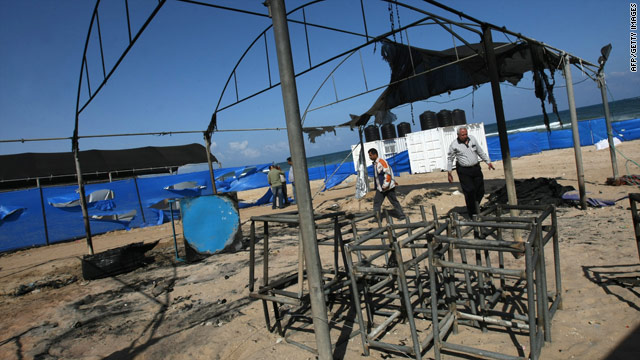By Tristan Simoneau
Impunity Watch Reporter, Europe
MEZHDURECHENSK, Russia – Two weeks ago, in western Siberia, twin methane explosions destroyed Russia’s largest coal mine. At least 67 miners were killed and 23 are still missing. The mine is owned by the Raspadskaya Coal Company, which is mainly controlled by the powerful steel giant Evraz, who owns a 40 percent stake in the Raspadskaya mine.

- Photo: Russian Prime Minister Vladimir Putin addressing a commission investigating the Raspadskaya coal mine disaster [Source: Christian Science Monitor]
It is still unclear how the methane was allowed to build to such dangerous levels despite the mine being equipped with modern sensors. Government officials have said the explosions were likely a result of an enormous underground burst of gas, a so called “mystery of nature” as one expert described. However, many Russian miners have offered another explanation for this disaster. Mining companies often link workers’ pay to the amount of coal that is extracted. It is possible that in order to increase their potential earnings, miners covered the methane sensors with wet rags. Miners earn a base monthly salary of approximately $830 a month, which can rise to $1,164 if they meet their production quotas.
The deputy chairman of the Russian Coal Miners’ Trade Union stated that this policy motivated workers to block sensors which led to an explosion in 2007 that killed 110 at another site where Evraz owns a large stake. In a commentary that ran in “The Moscow Times” on May 19th, political analyst Yulia Latynina wrote that “Evraz must pay Putin’s bureaucrats large bribes and kickbacks to stay in operation. These ‘corruption taxes’ are built into production costs at Raspadskaya, which may translate into lower wages and thus the need for miners to circumvent safety regulations in order to earn bonuses.”
Most Russians learned about the mining accident from one of the three big nationwide TV channels which are either state-run or controlled by Kremlin-friendly business interests. What many people were not made aware of was that on the night of May 15th, at least 300 miners and supporters in Mezhdurechensk, the Siberian mining town where the tragedy occurred, staged a protest. A key railway line was blocked in the protest that called the response by the government uncaring and inadequate. Raspadskaya miner Sergei Krasilnikov said the reason for this protest is that locals are bitter about the lack of coverage in the national media. He stated that “the protests began precisely because there was no information about the accident and no one knew what was actually going on.”
The Kremlin may have control over through the TV networks but increasingly the youth of Russia are turning to the internet, making it possible to achieve more objective viewpoints on disasters such as the Raspadskaya tragedy.
For more information, please see:
CHRISTIAN SCIENCE MONITOR – After Russian Coal Mine Disaster, Questions about TV Censorship – 25 May 2010
RADIO FREE EUROPE – Black Hole: Russian Mining Tragedy Stirs Old Questions of Class, Privilege – 22 May 2010
THE NEW YORK TIMES – Putin Suggests Human Error in Mine Disaster – 11 May 2010

